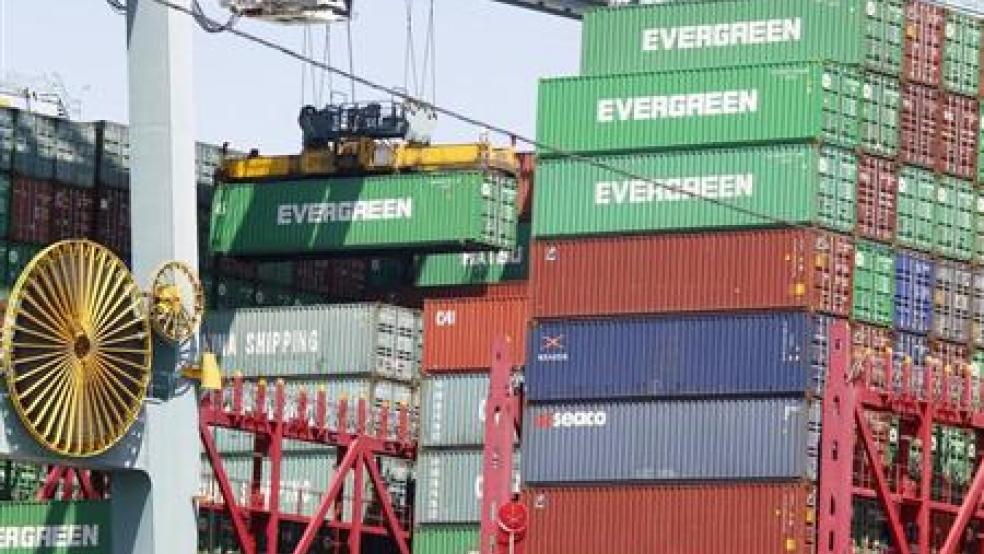There was a good reason why Hillary Clinton was virtually silent on the question of the Trans-Pacific Partnership trade deal for months. There was never a good time for her to come down on the question of whether the enormous agreement between the U.S. and 11 other Pacific nations ought to be allowed to go into force or not.
If she came out in support, she knew she would be attacked from the left by her opponents in the Democratic presidential primary, who believe the deal will be unfair to workers and will not do enough to protect the environment. If she came out against the deal, Republicans would position it as a politically driven betrayal of President Obama, highlighting the lingering public perception that Clinton is not trustworthy.
Related: Sensing an Advantage, Clinton Skewers GOP on Benghazi Probe
On Tuesday, Clinton took the least bad option available to her, announcing that she is provisionally against the deal, the full text of which has not yet been released.
"As of today, I am not in favor of what I have learned about it," Clinton said in an interview with the Public Broadcasting Service. “I have said from the very beginning that we had to have a trade agreement that would create good American jobs, raise wages and advance our national security. I still believe that's the high bar we have to meet. I've been trying to learn as much as I can about the agreement, but I'm worried.”
“I think there are still a lot of unanswered questions, but for me, it really comes down to those three things,” she said in the interview, taped ahead of time for the PBS NewsHour.
Later, in a statement released by the campaign, she added, “I appreciate the hard work that President Obama and his team put into this process and recognize the strides they made…But the bar here is very high and, based on what I have seen, I don't believe this agreement has met it.”
Related: Struggling Clinton Now Trails Trump, Bush and Fiorina in Iowa Matchups
Politically, this was the only choice. In the end, Republicans, whether they support TPP or oppose it, are going to attack Clinton on the trust question, and one example more or less isn’t going to change that. There is a large segment of the Democratic base, however, for which TPP is a very sensitive issue, and with her chief rival, Vermont Sen. Bernie Sanders, a vocal foe of the deal, being on the record opposing TPP is a political no-brainer.
However, in all the political analysis of Clinton’s decision, what’s lost is the real possibility that her opposition is actually grounded in policy.
It’s one of the ironies of the modern media age that, even as voters have gained access to vast amounts of information, their willingness to engage with complicated explanations of complex decision-making doesn’t seem to have increased at all.
As with many political positions, Clinton’s TPP stance is really pretty defensible if you take the time to listen to it. She supported the deal in concept, pushing for it as secretary of state and making dozens of positive comments about continuing the negotiations over the years. However, she finds herself disappointed by the terms of the final deal, and cannot support it.
Related: Clinton Throws Down a Challenge to Obama on Guns
On its face, there’s nothing disloyal, hypocritical or craven about that position. In fact, it’s similar to positions many of the (mostly Republican) opponents of the Iran nuclear deal took: they were willing to allow that there was at least the possibility that a deal they could support would be struck. In the end, they read the final agreement, and decided they didn’t support it.
It’s defensible from the other side, as well. Clinton can argue that she wasn’t ready to write off the deal until it was done, but in the end, she decided it didn’t address the concerns of the people she wants to represent, and she is forced to oppose it. (Admittedly, that argument would have worked better if she had waited until the text of the deal was available to come out against it, but…)
Of course, that didn’t stop her Democratic opponents from taking shots at her over the announcement. Sanders was relatively measured, saying he was pleased to hear of her stance, but claiming that her opposition would have been helpful to Democrats in congressional fight over the deal this summer.
Related: Hillary Clinton Is Right – The Obamacare ‘Cadillac Tax’ Is a Lemon
Martin O’Malley, the former Maryland governor trailing both Sanders and Clinton by a large margin was less charitable, tweeting out, “Leadership isn't changing your position on the eve of debate—it's standing up for the American worker, always.”
In the end, Clinton has probably played the TPP question about as well as she possibly could have up to this point. There will be future legislative fights ahead, on which she will have to take a position, and they will be complex – not least of all because many Republicans who strongly support free trade will be forced to decide between a trade deal and giving President Obama a political victory.
For the moment though, Clinton seems to have played a bad hand about as well as she could have.





